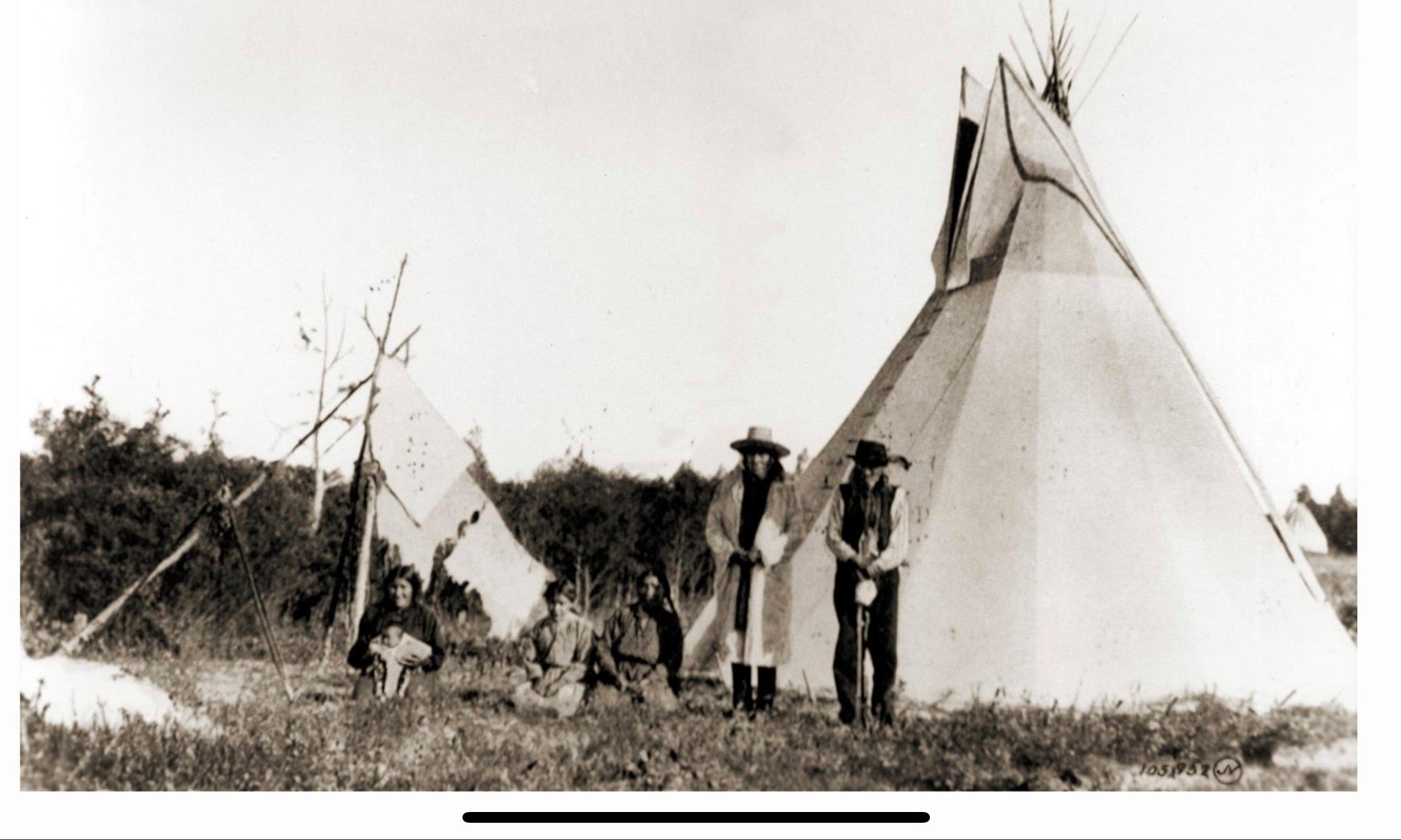
History
Muskowekwan First Nation is a Saulteaux (Ojibway) First Nation located approximately 140 km northeast of Regina. As of May, 2008, the Muskowekwan First Nation had 1,517 registered people with about 400 on Reserve.
Chief Ka-nee-na-wup - ("One Who Sits Like an Eagle") and his Saulteaux Band lived north of the Qu'Appelle Lakes prior to signing of Treaty 4 on September 15, 1874. When Ka-nee-na-wup died, his son Muscowequan or Muskowekwan in the Anishinaabe language said Maskawigwan, "Hard Quill" became Chief. The reserve was surveyed in 1883, incorporating the land and settlement where they had already started farming.
Treaty 4 (September 15, 1874) was signed with the Government of Canada and some of the “the Cree, Saulteaux,” including Chief Ka-kee-na-wup on behalf of Muskowekwan First Nation.
Treaty 4 is known as the Qu’appelle Treaty, as its first signings were conducted at Fort Qu’Appelle, Saskatchewan. Additional signings or adhesions would continue until September 1877. Muskowekwan First Nation occupies the Muskowekwan Reserve which borders on the town of Lestock, Saskatchewan and covers approximately 16479 acres. At the signing of Treaty 4 on September 15, 1874, there were 66 members present, 1 councilor, and a chief.
The Muskowekwan First Nation occupies Indian Reserve No. 85 (IR 85). The First Nation language of the people is Saulteaux (Plains Ojibway). A key demand of the Cree and the Saulteaux First Nations in Treaty negotiations was education. Since the buffalo had nearly vanished from the prairies, they wanted to acquire new tools that would ensure a strong and prosperous future. Treaty 4 signatories from the chiefs as follows: Ka-kii-shi-way (Ochapowace), Pis-qua (Pasqua), Ka-wez-ance (Cowessess), Ka-kee-na-wup (Muskowekwan), Kus-kee-tew-mus-coo-musqua (Little Black Bear), Ka-ne-on-us-ka-tew (Gordon), Can-ah-ha-cha-pew (Peepeekisis), Kii-si-caw-chuck (Day Star), Ka-ra-ca-toose (Kawacatoose), Ka-kii-nis-ta-haw (Kahkewistehaw), Cha-ca-chas (Ochapowace), Wa-pii-moose-too-sus (Star Blanket), Meemay (Cote)
Treaty Conditions Reserves of 1 square mile per every 5 persons, Annuities of $25 for chief, plus coat and medal, Headman $15 annuity, Each individual $5 annuity, Chief’s suit of clothing every three years, Blankets, calicoes, and British flag (once), Powder, shot, and twine annually $750, Per family: 2 hoes, spade, scythe, axe, seed , Per ten families: 1 plough, 2 harrows, For chief: oxen, bull, 4 cows, carpenter’s tools, 5 hand saws, 5 augers, crosscut saw, pit saw, and grindstone, School on reserve, No liquor allowed, Hunting, fishing, & trapping
